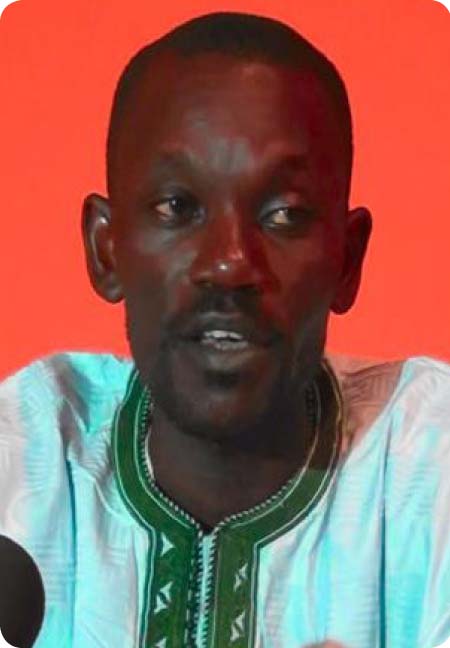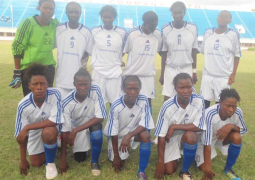
Sosseh, who until his arrest was the coordination of the West Africa Agriculture Productivity Project (WAAPP), now faces new charges which include economic crime and negligence of official duty, which he had denied.
State prosecutors accused Sheikh Tijan Sosseh in count one that, while employed as the project coordinator of the GEAPP, he failed and or omitted to fully apply the Euro 5.3 million grant from the World Bank, leaving unspent the sum of $76,489.20 which omission was detrimental to the economy of The Gambia, and the welfare of the Gambian people.
Count two stated that while employed in the public service of The Gambia as GEAPP coordinator, Sosseh neglected to effectively supervise the construction and rehabilitation of the Seed Multiplication Center at Chamen in The Gambia.
Sheikh Tijan Sosseh was further accused in count three that, while employed as the GEAPP coordinator, he recklessly paid D15,895,125.25 to the general procurement service in spite of the shoddy construction and the rehabilitation works at Chamen Seed Multiplication Centre, and thereby caused economic loses to The Gambia, that is, the Ministry of Agriculture and the GEAPP.
The case was adjourned to 7th October 2013, for mention.
Meanwhile, Sheikh Tijan Sosseh was granted court bail of D20 million with four Gambian sureties who must individually or jointly deposit leasehold property of that value, and such property must be situated within the Greater Banjul Area.
This was contained in a ruling delivered yesterday by Justice Emmanuel Nkea of the Special Criminal Court, following the application made by the defence counsel.
Justice Nkea, in his ruling, stated that upon an application dated and filed on 23rd July 2013, the applicant through his counsel was praying for an order releasing the applicant on bail pending the hearing and determination of any charges against him.
He said the application was brought pursuant to the Economic Crime Specified Offences Act, the constitution and Criminal Procedure Code.
As a preliminary issue, he went on, both sides have argued in terms of the Evidence Act, attacking the respective affidavits for non disclosure of the sources of the respective affidavit evidence.
Justice Nkea added that in support of the application were a 22-paragraph affidavit and a three-count charge attached therein, and there was an opposing affidavit of six paragraphs.
“In adopting the respective affidavits, both sides made oral arguments in support and against the grant of the prayers sought,” Justice Nkea said.
It was common cause that the applicant has been in custody since his arrest on 10 June 2013, and that investigation into the matter had been concluded, and these he shall hold as facts, the judge stated.
He said it was important to recall that on 18 July 2013, there was order directing that the applicant be kept for some time at the Police Headquarters to allow him access to his family and counsel.
“I have not been informed that those orders were not complied with. Even if it were so, which has not been established, I have not been given any reasons for such non compliance. This piece of affidavit is therefore inherently self-contradictory,” he said.
The lone issue for determination was whether the applicant should be admitted to bail pending the determination of the charges against him, he went on.
“Where the offences are bailable one, as in this case, the granting of bail should not be unjustifiably denied. The denial of bail would be justifiable where the State has led concrete evidence that the applicant is likely to jump bail,” stated Justice Nkea.
He stated that the issue of bail was within the discretion of the court and in the exercise of any judicial discretion, the court must do so judiciously and judicially.
“It is judicious when all the surrounding circumstances of the case are taken into account, and judicial if supported by law,” he went to.
“I am therefore favorably disposed to exercise my discretion in favour of the grant of bail. I will do so because the grant of bail enhances the fair trial of the accused person as embodied in the 1997 constitution. Since the Constitution is the fundamental law of this country, I will follow it; but in doing so, I will consider the fact that the offences with which the accused is charged alleges the loss of over D15 million,” Justice Nkea stated.
He consequently granted bail to the applicant on the above conditions.


